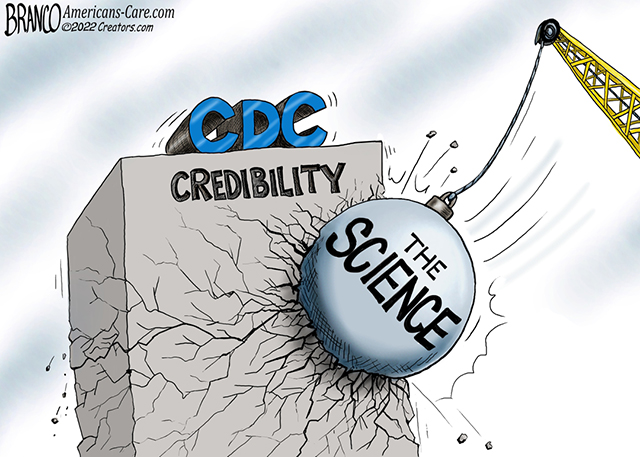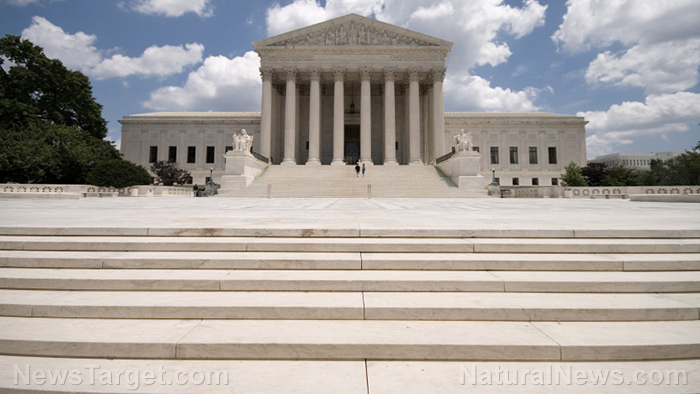Another vaccine shill out: CDC scientist who pushed COVID-19 and RSV injections RESIGNS over HHS policy shift
06/20/2025 / By Ramon Tomey

- Dr. Fiona Havers, a senior CDC scientist with 13 years of experience, resigned – citing concerns that the agency’s vaccine policies under Health Secretary Robert F. Kennedy Jr. were abandoning evidence-based decision-making.
- Havers’ exit followed the abrupt resignation of Dr. Lakshmi Panagiotakopoulos, a CDC pediatric infectious disease expert, amid Kennedy’s overhaul of federal vaccine advisory panels – including the removal of all 17 ACIP members.
- The resignations highlight tensions between career scientists and HHS, as Kennedy’s administration rolled back COVID-19 vaccine recommendations for healthy children and pregnant women without ACIP’s usual review process.
- Critics accuse Kennedy of replacing independent experts with ideological allies, while supporters argue the reforms eliminate corporate influence. Ousted ACIP members warned of risks to public health, but advocates like Kim Witczak claim the CDC’s credibility crisis predates Kennedy.
- The debate reflects a larger conflict over vaccine policy, with HHS pledging stricter scientific integrity and critics fearing destabilization. The fallout precedes key CDC meetings on booster recommendations, signaling an ongoing battle over public health priorities.
A senior Centers for Disease Control and Prevention (CDC) scientist overseeing respiratory virus data has left the agency, citing fears that its vaccine policies under Health Secretary Robert F. Kennedy Jr. are abandoning scientific rigor.
Dr. Fiona Havers – a 13-year CDC veteran who shaped national recommendations for Wuhan coronavirus (COVID-19) and respiratory syncytial virus (RSV) vaccines – stepped down on Monday, June 16. She warned colleagues in a resignation email that her work was no longer being used to make “evidence-based” decisions.
Havers’ research, cited in over 20 peer-reviewed studies, underpinned policies promoting vaccines for vulnerable groups including infants and the elderly. Her August 2021 CDC report claimed COVID-19 vaccines “reduce the risk for hospitalization.” She also insisted in a 2024 study that RSV vaccines were tied to lower infant hospitalization rates – despite the injection causing neurological risks like Guillain-Barre syndrome.
Havers’ exit followed the abrupt resignation of Dr. Lakshmi Panagiotakopoulos, a pediatric infectious disease expert who co-led the CDC’s Advisory Committee on Immunization Practices (ACIP). Both departures came amid Kennedy’s sweeping overhaul of federal vaccine advisory panels, including the removal of all 17 ACIP members. (Related: Vaccine shill out: Top member of CDC immunization committee RESIGNS.)
On the one hand, critics accuse Kennedy of replacing independent experts with ideological allies. On the other hand, supporters argue the shakeup is necessary to purge corporate influence from public health.
Big Pharma influenced destroyed CDC credibility
The resignations highlight a deepening rift between career scientists and the Department of Health and Human Services (HHS). The agency under Kennedy has already rolled back COVID-19 vaccine recommendations for healthy children and pregnant women without ACIP’s usual input.
Meanwhile, the 17 ousted ACIP members warned in a commentary published in the Journal of the American Medical Association that Kennedy’s actions “may roll back the achievements of U.S. immunization policy.” They also warned that his “destabilizing decisions” risk outbreaks of preventable diseases.
But drug safety advocate Kim Witczak countered that the CDC’s credibility crisis predates Kennedy. She commented: “Where was [Havers’] concern during the COVID vaccine era?” Witczak, a member of the Food and Drug Administration‘s Psychopharmacologic Drugs Advisory Committee, pointed out that “the system only values critique when it suits internal narratives.”
HHS spokeswoman Emily G. Hilliard defended Kennedy’s reforms, stating vaccine policies will now follow “the gold standard of scientific integrity” free from “industry influence.” The timing of Havers’ departure came before ACIP’s June 25 to 27 meeting, where new appointees will vote on fall booster recommendations.
Internal medicine physician Dr. Clayton J. Baker dismissed the uproar as media theatrics: “A low-level CDC employee leaving under a new administration isn’t news,” he commented. “The real story is why Americans lost trust in these institutions.”
For Witczak, the resignations signal a overdue reckoning. “Public health is finally being forced to serve people, not [Big] Pharma,” she warned. But the battle over vaccine policy’s future is just beginning.
Check out CDC.news for more similar stories.
Watch Del Bigtree putting the CDC on notice over its admission of vaccine safety failures in this clip.
This video is from The HighWire with Del Bigtree channel on Brighteon.com.
More related stories:
FDA’s ‘Vaccine Czar’ – Peter Marks – betrayed Americans, destroyed medical ethics and human lives.
CDC drops COVID-19 vaccine recommendation for healthy kids and pregnant women.
Sources include:
Submit a correction >>
Tagged Under:
big government, Centers for Disease Control and Prevention, covid vaccine, covid-19, Department of Health and Human Services, Fiona Havers, freedom, health freedom, Lakshmi Panagiotakopoulos, Liberty, respiratory syncytial virus, Robert F. Kennedy Jr., RSV vaccine, Wuhan coronavirus
This article may contain statements that reflect the opinion of the author





















